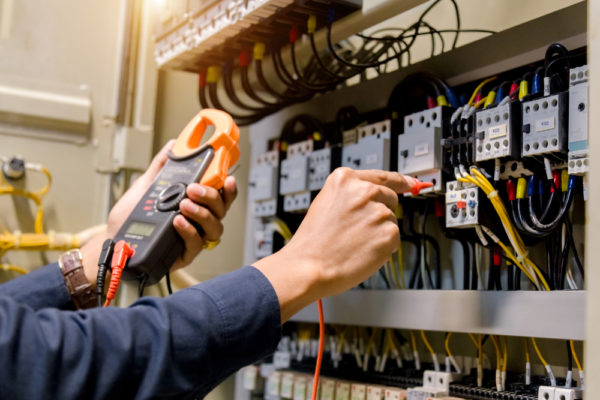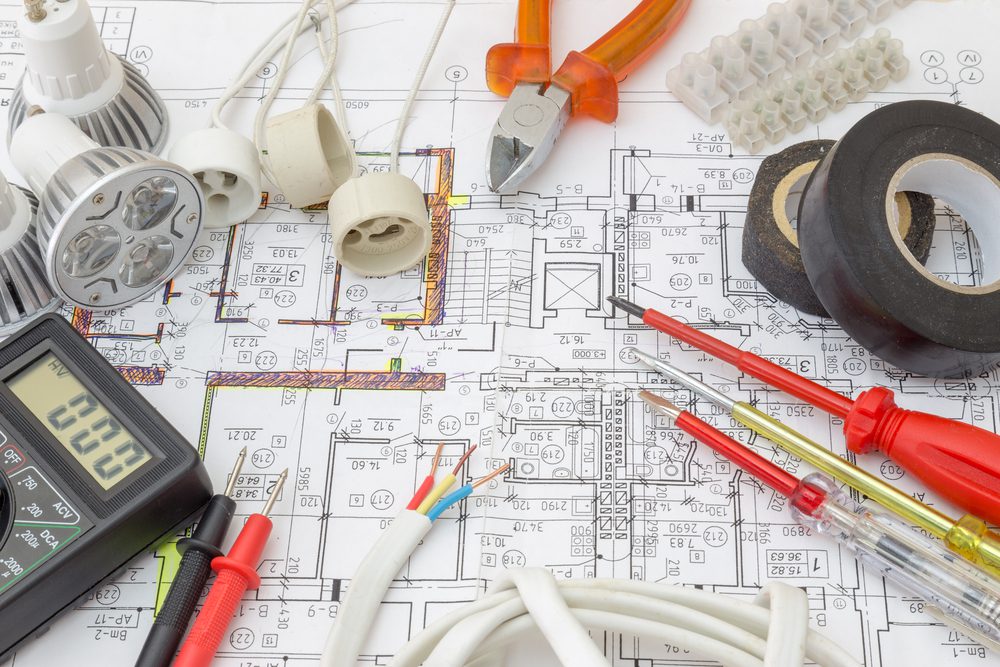The Comprehensive Role of Industrial Electricians in Ensuring Reliable Power Distribution and Electric Upkeep in Industrial Setup
The role of commercial electrical experts prolongs much beyond basic electrical tasks; they are important to the security and performance of commercial procedures. Their duties include installment, upkeep, and repair of intricate electric systems, making sure conformity with rigid safety and security standards. As markets evolve, the integration of sophisticated modern technologies and smart systems provides brand-new obstacles and chances for these specialists. Understanding exactly how their expertise not just safeguards operational connection yet likewise contributes to sustainability initiatives increases critical questions regarding the future landscape of electrical upkeep in industrial setups. What ramifications does this have for the labor force and technical innovation?
Relevance of Industrial Electricians
In many commercial settings, the function of electrical contractors can not be overemphasized. These specialists are integral to the operation and upkeep of electric systems, guaranteeing that power distribution is efficient and trusted. Their experience not only sustains the day-to-day performance of making processes but likewise plays a critical function in boosting overall work environment safety and security. Industrial electrical contractors have specialized understanding of intricate electric systems, consisting of high-voltage devices and automated machinery, which are crucial for contemporary commercial operations.
In addition, the need for experienced electrical contractors continues to grow, driven by advancements in innovation and boosted reliance on automated systems. As industries evolve, the requirement for electrical contractors who can install, fix, and preserve advanced electrical facilities becomes critical. Their contributions extend past plain installment; they are principals in guaranteeing conformity with safety regulations and market standards, therefore reducing risks related to electric failings.
Key Responsibilities and Responsibilities
Industrial electrical experts often involve in a range of essential duties that are important to the smooth procedure of power circulation systems. One of their key duties includes setting up, preserving, and repairing electrical wiring and tools in commercial settings. This involves making certain that electrical systems adhere to safety policies and industry criteria to avoid dangers such as electrical fires or tools failing.
Along with installment jobs, commercial electricians are in charge of repairing and diagnosing electric concerns. They utilize specialized tools and strategies to recognize faults in equipment and power circulation networks, guaranteeing that any type of malfunctions are quickly dealt with to lessen downtime. licensed electrical contractor. Normal upkeep is one more important aspect of their duty, where they carry out preventative procedures and regular examinations to maintain systems working ideally

Abilities and Qualifications Called for
Efficiency in electrical systems is crucial for commercial electrical contractors, as it enables them to effectively browse the intricacies of power distribution (industrial electricians). A strong structure in electrical theory, including expertise of circuits, voltage, present, and resistance, is vital. Industrial electrical experts have to have a comprehensive understanding of electric codes and laws to make sure compliance with sector standards
In enhancement to technical knowledge, sensible skills are vital. Effectiveness in troubleshooting and problem-solving allows electricians to detect and settle problems successfully, minimizing downtime in commercial procedures. Familiarity with numerous tools and equipment, such as multimeters, oscilloscopes, and power analyzers, is additionally necessary for efficient repair and maintenance.
Additionally, commercial electrical experts are usually required to have formal education, generally finishing in an associate level or completion of an apprenticeship program. These programs offer hands-on training and theoretical expertise, equipping electricians with the skills needed for the field.
Certifications, such as those from the National Institute for Accreditation in Design Technologies (NICET), can additionally boost an electrical contractor's certifications, showing expertise and commitment to the career. In general, a mix of education and learning, useful experience, and technological skills is vital for success in this demanding why not try these out role.
Safety Specifications and Conformity
Compliance with security requirements is a basic facet of the commercial electrical contractor's role in power distribution. Industrial electricians are entrusted with sticking to a plethora of regulations and guidelines established by organizations such as the National Electric Code (NEC) and Occupational Safety And Security and Wellness Administration (OSHA) These standards make certain not only the risk-free operation of electric systems however additionally the defense of personnel and devices.
To achieve compliance, electrical contractors must conduct routine inspections and upkeep of electrical systems, determining potential hazards and executing restorative measures. This consists of appropriate grounding, circuit protection, and the use of suitable individual protective devices (PPE) By preserving a comprehensive understanding of both neighborhood and national codes, electrical contractors can successfully reduce threats connected my response with electrical work.
Furthermore, industrial electricians play a critical duty in training workers on safety practices and emergency treatments. This education and learning promotes a culture of safety and security within the workplace, minimizing the chance of mishaps and guaranteeing that all workers understand their responsibilities relating to electrical safety.

Future Patterns in Electrical Upkeep
As technology remains to develop, the future of electric maintenance in power circulation is significantly characterized by the integration of clever systems and predictive analytics. These developments enable industrial electricians to move past traditional reactive upkeep approaches, fostering a proactive method that improves system dependability and effectiveness.
One considerable pattern is the fostering of Internet of Things (IoT) gadgets, which facilitate real-time tracking of electric systems. This technology allows for the collection of substantial quantities of information, giving insights right into equipment efficiency and prospective failure points. By leveraging predictive analytics, electricians can prepare for issues prior to they intensify, reducing downtime and upkeep prices.
In addition, the application of innovative automation innovations is transforming electrical maintenance. Automated diagnostic tools can promptly determine faults and recommend corrective actions, simplifying the repair service procedure. This not just boosts response times but also lessens human mistake.
Furthermore, the growing focus on sustainability is driving the advancement of energy-efficient remedies and renewable resource assimilation. As commercial markets progressively adopt greener methods, electricians will play a critical site web function in maintaining these systems, making certain that power circulation aligns with ecological requirements. Overall, the future of electric maintenance assures improved efficiency, dependability, and sustainability.
Conclusion
In conclusion, industrial electrical experts are important to the performance and safety and security of industrial atmospheres. The duty of commercial electricians will certainly proceed to broaden in value.
The function of commercial electrical contractors prolongs far past basic electrical jobs; they are integral to the stability and effectiveness of commercial operations (industrial electrical companies). Industrial electrical experts possess specialized knowledge of complicated electrical systems, including high-voltage devices and automated equipment, which are crucial for contemporary industrial operations
Moreover, industrial electrical experts collaborate with designers and various other specialists to develop and execute reliable electric systems customized to details industrial needs.Effectiveness in electric systems is necessary for commercial electricians, as it enables them to successfully browse the complexities of power distribution.In final thought, industrial electrical contractors are essential to the capability and security of industrial settings.